Governance and Civics Worksheets for Ages 7-9
47 filtered results
Difficulty Level
Grade
Age
-
From - To
Subject
Activity
Standards
Favorites
With answer key
Interactive


The Constitution Worksheet
Teach your child America's history and identity: have them complete the Constitution of the United States of America worksheet. It's essential for our nation that our future generations understand the importance of our constitution. Make sure your child is prepared!
The Constitution Worksheet
Worksheet
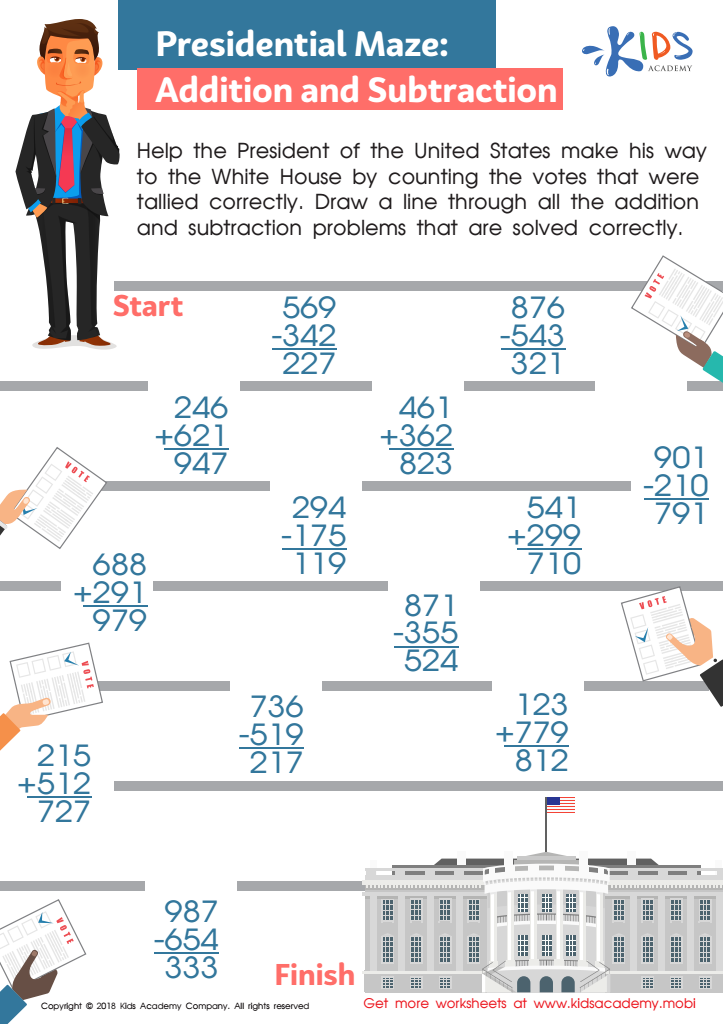

Presidential Maze: Addition and Subtraction Worksheet
Help the President get elected by counting the votes on this fun addition and subtraction worksheet from Kids Academy! Guide learners to go through each problem, drawing a line through any that are completed correctly and leaving incorrect answers alone. Get voting and have a blast!
Presidential Maze: Addition and Subtraction Worksheet
Worksheet


Bill of Rights Worksheet
Kids can learn about the rights the Bill of Rights grants us as US citizens. Work on the PDF worksheet with your 3rd grader to understand the ten amendments. This is a great way for your child to learn about the historical and essential document!
Bill of Rights Worksheet
Worksheet


White House Worksheet
Read stories to your students to teach them new words, and about the White House. Before reading, ask your kindergartners what they already know. Then read short sentences for them to learn about the building the U.S President resides in.
White House Worksheet
Worksheet
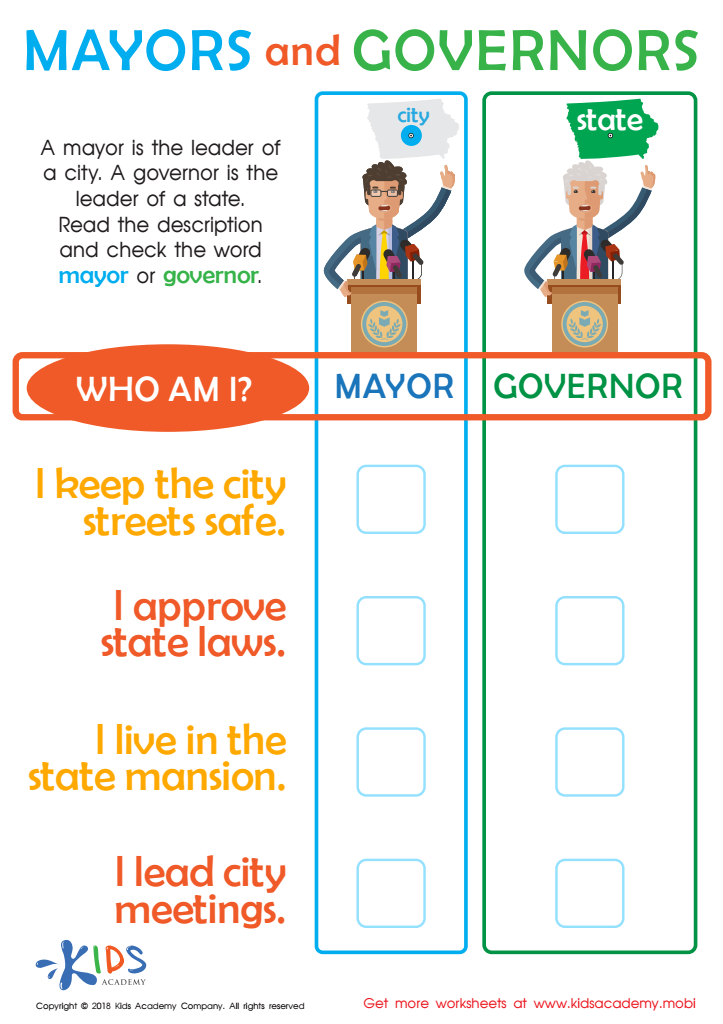

Mayors and Governors Worksheet
Encourage your children to learn more about your country's leaders. Ask them if they can name your mayor or state's governor. Explain that mayors lead cities, while governors lead states. Read the descriptions out loud to them, and help them identify if it's a mayor or a governor.
Mayors and Governors Worksheet
Worksheet


Declaration of Independence Worksheet
This PDF worksheet will help your child review important US history facts about the Declaration of Independence. It will cover key topics such as its purpose, author and date it was signed, which are integral to the US as a nation.
Declaration of Independence Worksheet
Worksheet
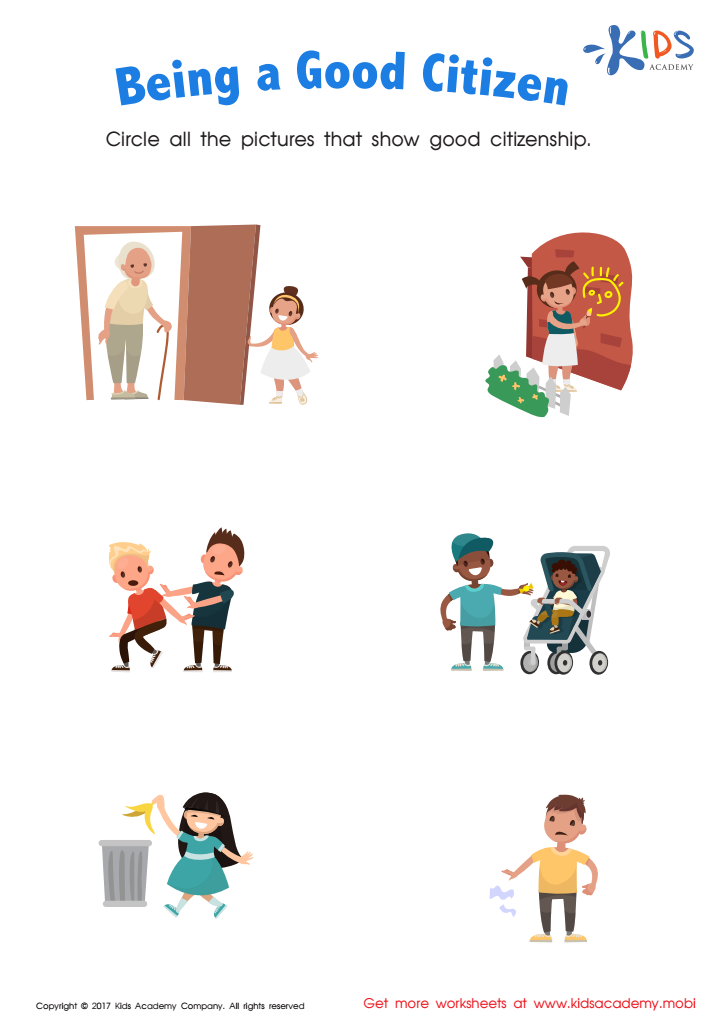

Being a Good Citizen Printable
Help your child learn the importance of being a good citizen with this fun worksheet! It reinforces positive behaviors in the community and teaches essential skills like character. Try it today!
Being a Good Citizen Printable
Worksheet
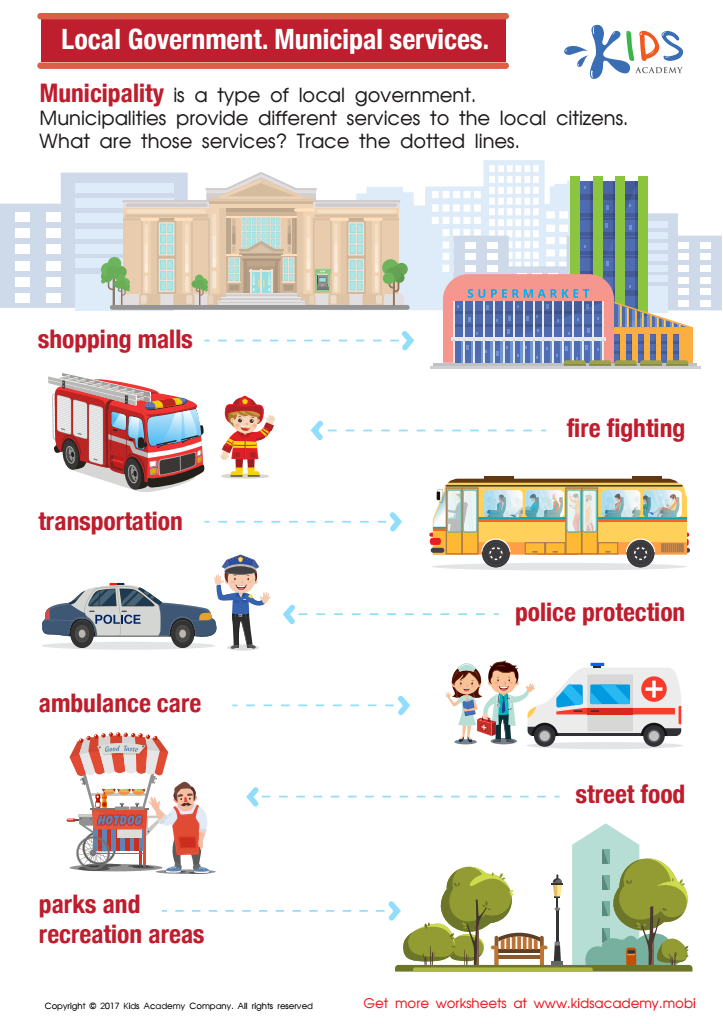

Local Government Worksheet
This local government worksheet helps 3rd graders learn about important local entities that impact our cities. Kids will make a connection between community services and local municipalities.
Local Government Worksheet
Worksheet
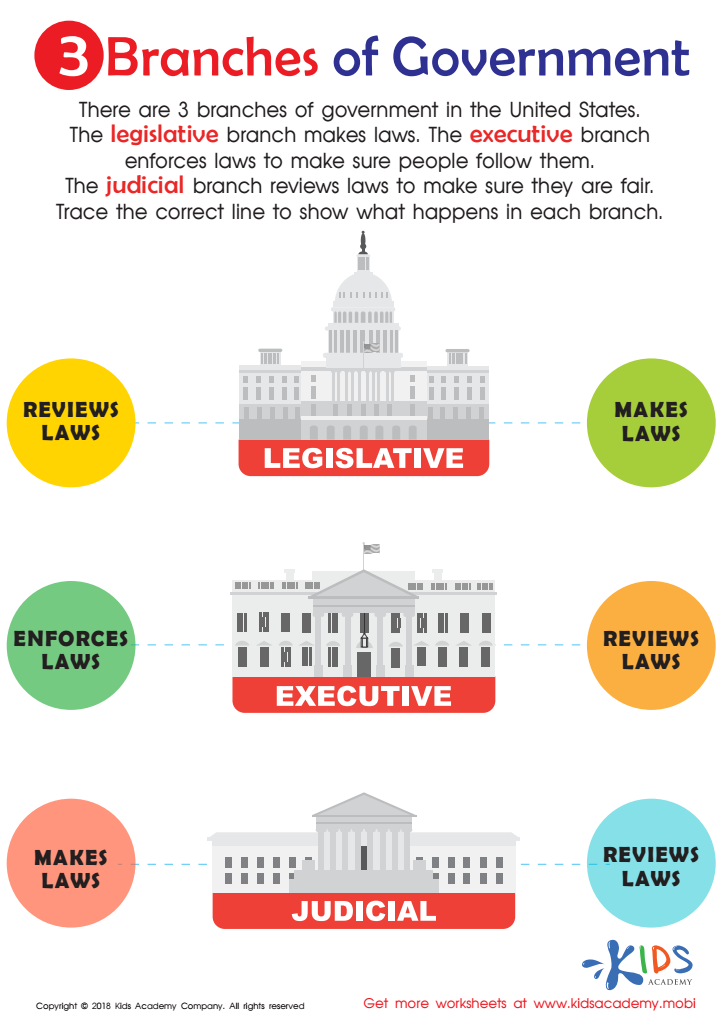

3 Branches of Government Worksheet
In the U.S., there are three tiers of government: legislative (makes laws), executive (enforces laws), and judicial (reviews laws). Have your child use the worksheet to connect each branch with its role.
3 Branches of Government Worksheet
Worksheet
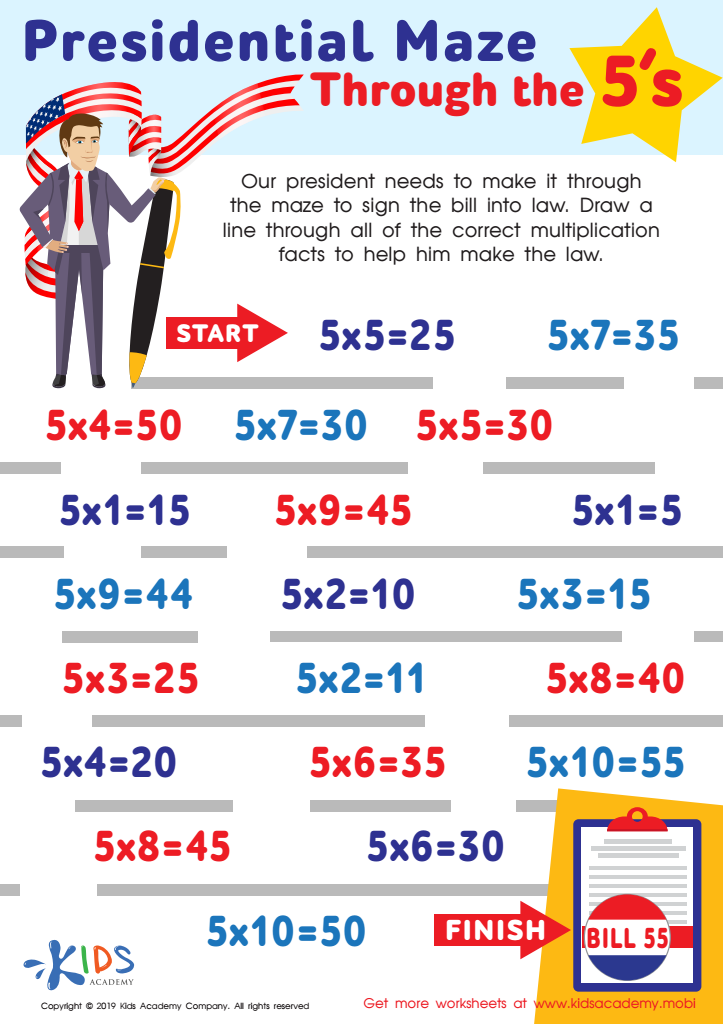

Presidential Maze Through the 5’s Worksheet
Help your kids draw a line through the right multiplication facts to guide the state's President to sign the bill into law. This is a big responsibility - the President has been elected to make decisions on behalf of the people and has the power to make laws and sign them.
Presidential Maze Through the 5’s Worksheet
Worksheet
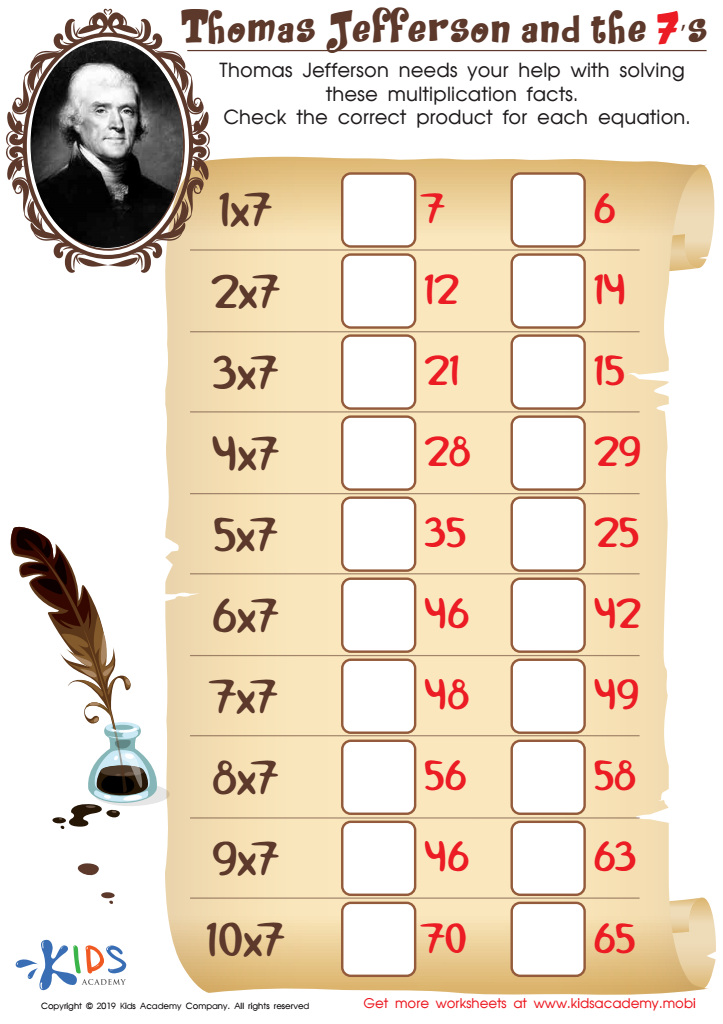

Thomas Jefferson and the 7’s Worksheet
Thomas Jefferson championed education and wants kids to know their times tables. Help your child with this worksheet focusing on 7's. Check the box for the correct answer for each multiplication problem. Make sure your child gets the facts right!
Thomas Jefferson and the 7’s Worksheet
Worksheet
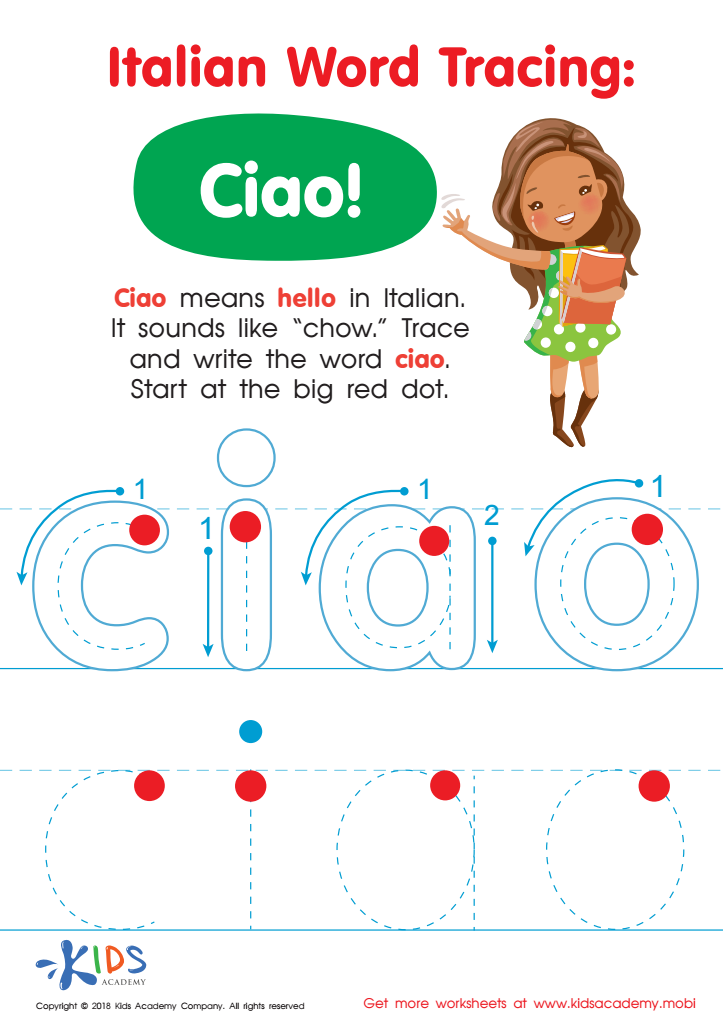

Italian Word Tracing: Ciao Worksheet
Help kids learn to greet people in different languages with this fun worksheet! Featuring the Italian word 'Ciao', it helps kids trace and learn the pronunciation. Plus, it teaches hand-eye coordination and fine-motor skills. Global connectivity can start with this activity!
Italian Word Tracing: Ciao Worksheet
Worksheet


French Word Tracing: Bonjour Worksheet
Students can learn about culture and practice writing and saying "Bonjour" using the traceable lines. Guide dots support top-to-bottom patterning and left-to-right reading/writing. It's an ideal introduction to different greetings and connecting as global citizens.
French Word Tracing: Bonjour Worksheet
Worksheet
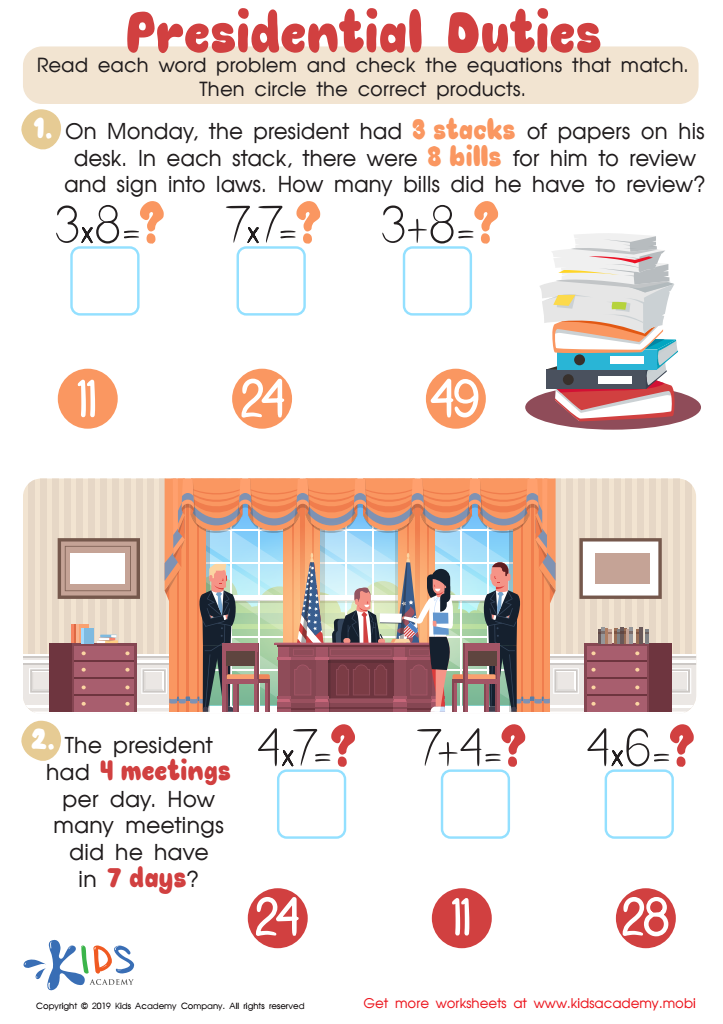

Presidential Duties Worksheet
Presidents have many duties. Utilize this worksheet to review the important ones while solving multiplication word problems. Read each passage, determine the equation, then find the product and select the correct answer.
Presidential Duties Worksheet
Worksheet
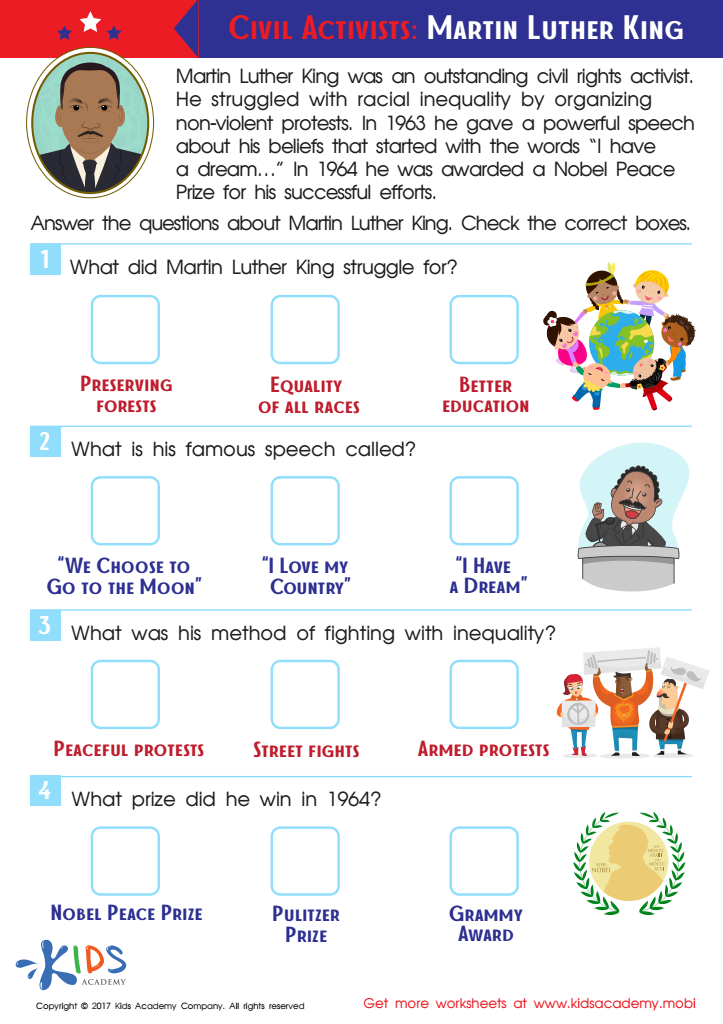

Martin Luther King Worksheet
Introduce your 3rd grader to Martin Luther King Jr.! This worksheet will open their eyes to his impact on US history. Let them discover his life, learnings, and legacy with this informative activity.
Martin Luther King Worksheet
Worksheet
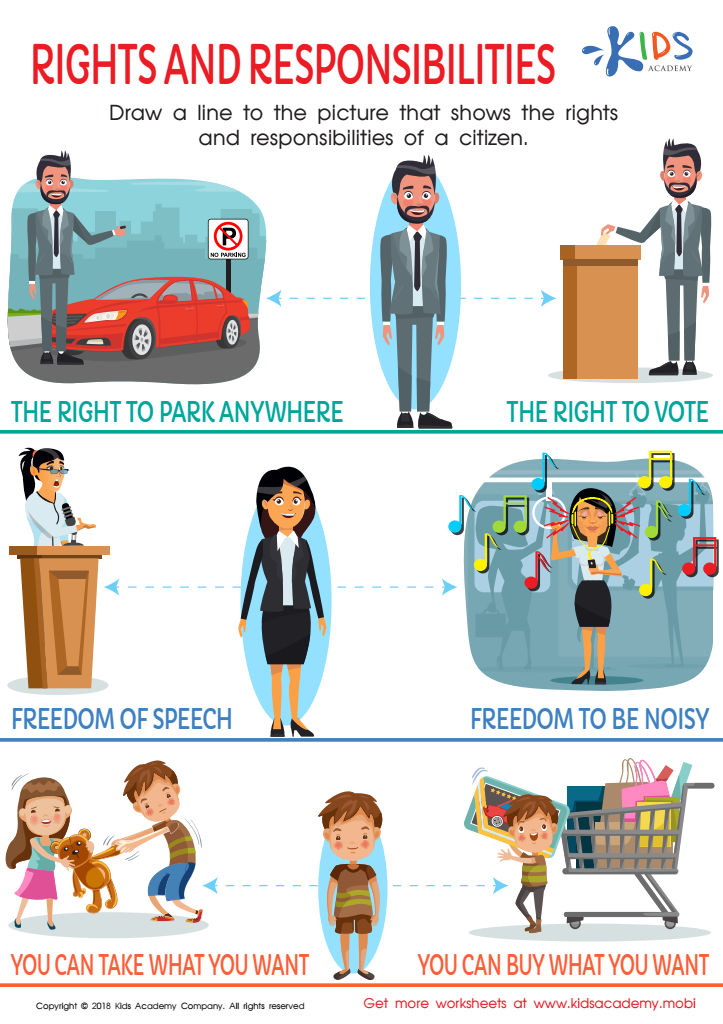

Rights and Responsibilities Worksheet
Encourage your kids to discuss their rights as citizens. Help them recognize fundamental human rights they're entitled to. Review the worksheet: ask them to read aloud and draw a line to the right picture. Invite them back to the discussion to explain their choices. Each step will help them understand and exercise their rights.
Rights and Responsibilities Worksheet
Worksheet


Hello Around the World Worksheet
This fun and cheery worksheet helps kids explore different cultures and how people greet each other around the world. With colorful pictures and clues, they'll check off greetings from different countries and learn more about the world.
Hello Around the World Worksheet
Worksheet
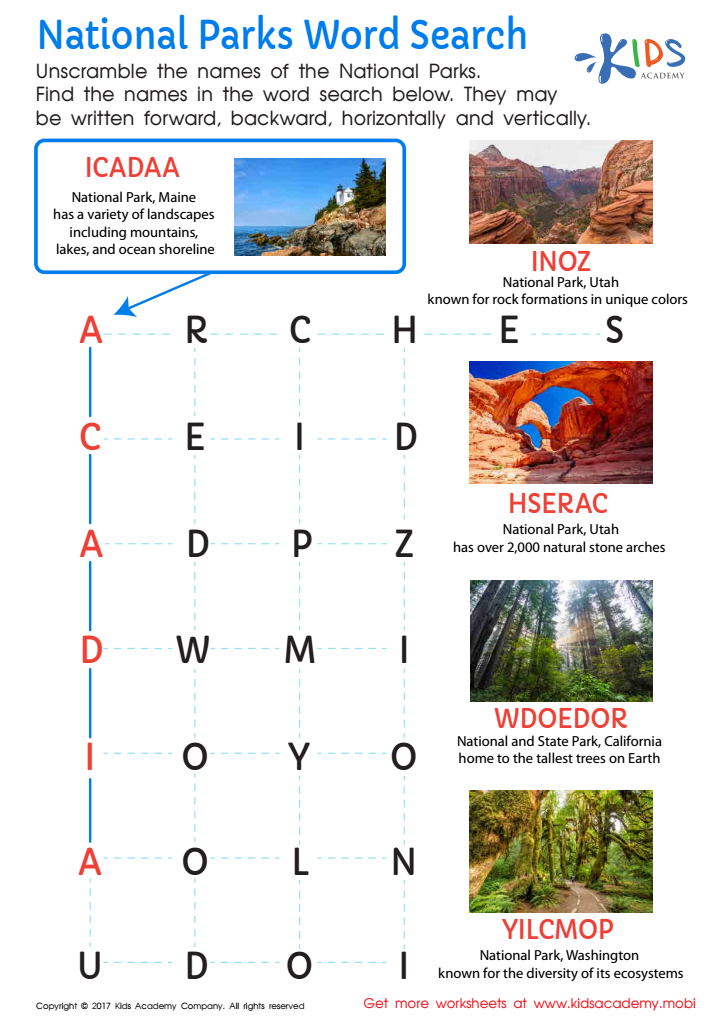

National Parks Word Search Worksheet
Explore the beauty of the USA’s national parks with this fun National Parks word search! Learn more about these majestic sites and boost your knowledge. Take a trip through the sights and sounds of our country with this motivating worksheet.
National Parks Word Search Worksheet
Worksheet
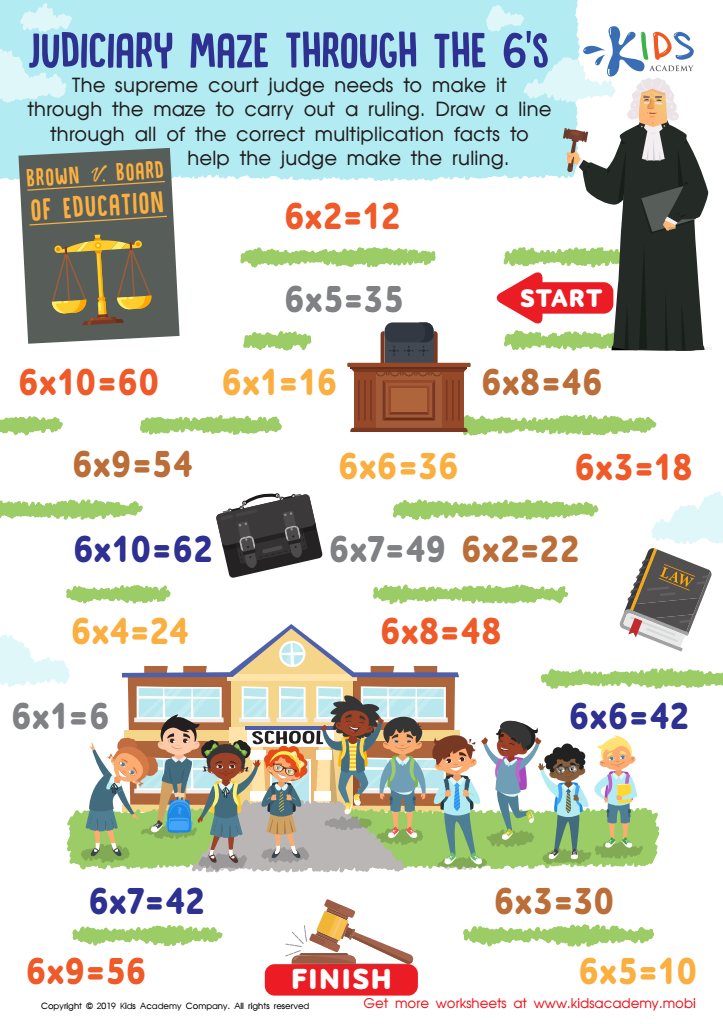

Judiciary Maze Through The 6’s Worksheet
Multiplication can be complicated for kids, with lots of numbers and a seemingly endless multiplication table. Get them interested with a fun worksheet! Have them draw a line through all the correct multiplication facts to help the judge make it through the maze and carry out a ruling.
Judiciary Maze Through The 6’s Worksheet
Worksheet


The Presidential Symbol Worksheet
Have your kid gain knowledge of US symbols and test their reading comprehension with this presidential seal worksheet! They'll discover how the details of the seal represent our nation's past.
The Presidential Symbol Worksheet
Worksheet
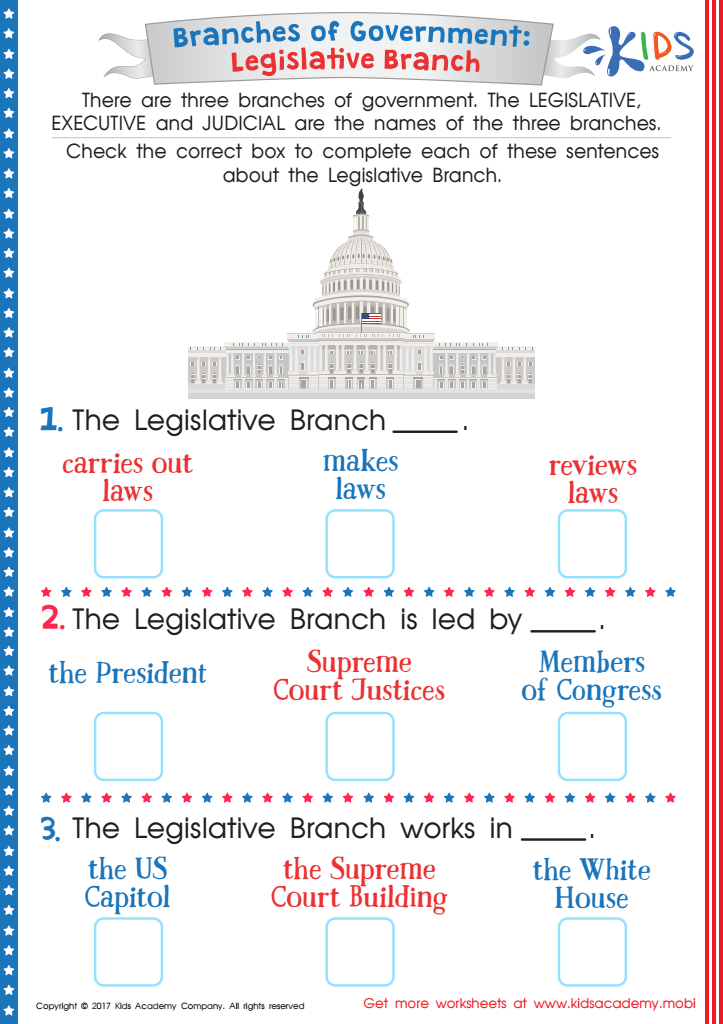

Branches of the Government: Legislative Branch Worksheet
The US legislative branch creates laws which the judicial branch enforces. This worksheet helps kids learn about this important branch of government, including who the leaders are and where Congress meets.
Branches of the Government: Legislative Branch Worksheet
Worksheet
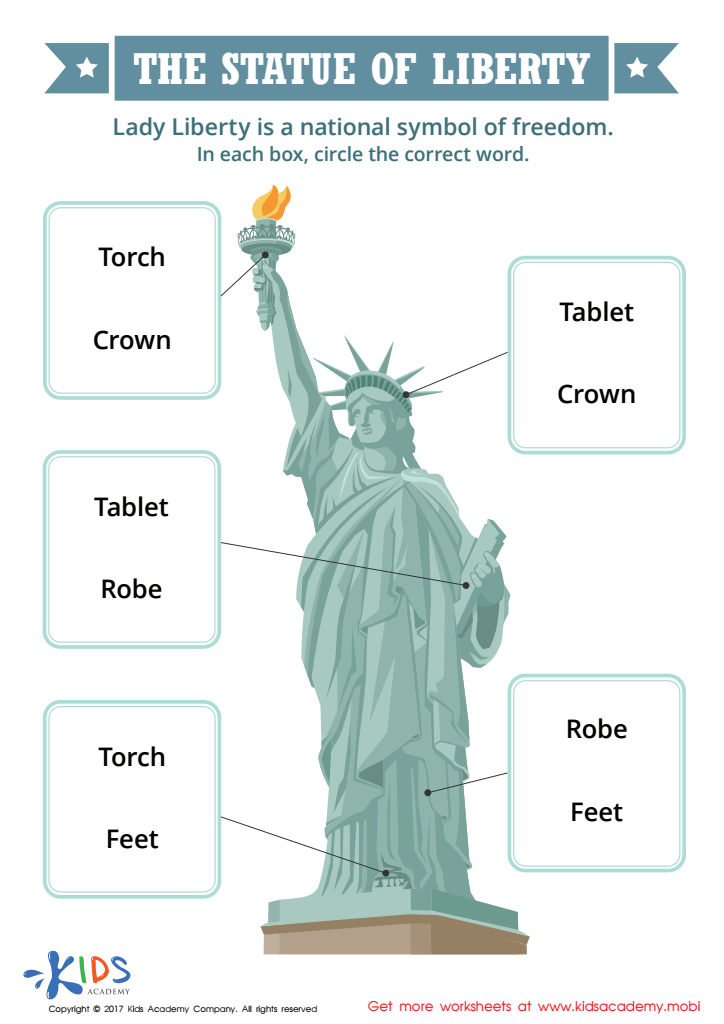

The Statue of Liberty Printable
Introduce the iconic Statue of Liberty with our printable worksheet. Perfect for learning about US symbols and their importance!
The Statue of Liberty Printable
Worksheet


Creating a Law Worksheet
Help your child understand how laws are made with this Creating a Law Worksheet. Perfect for young learners, it covers the lawmaking process with fun pictures and simple language. Get an exciting insight into democracy and teach kids the importance of laws!
Creating a Law Worksheet
Worksheet
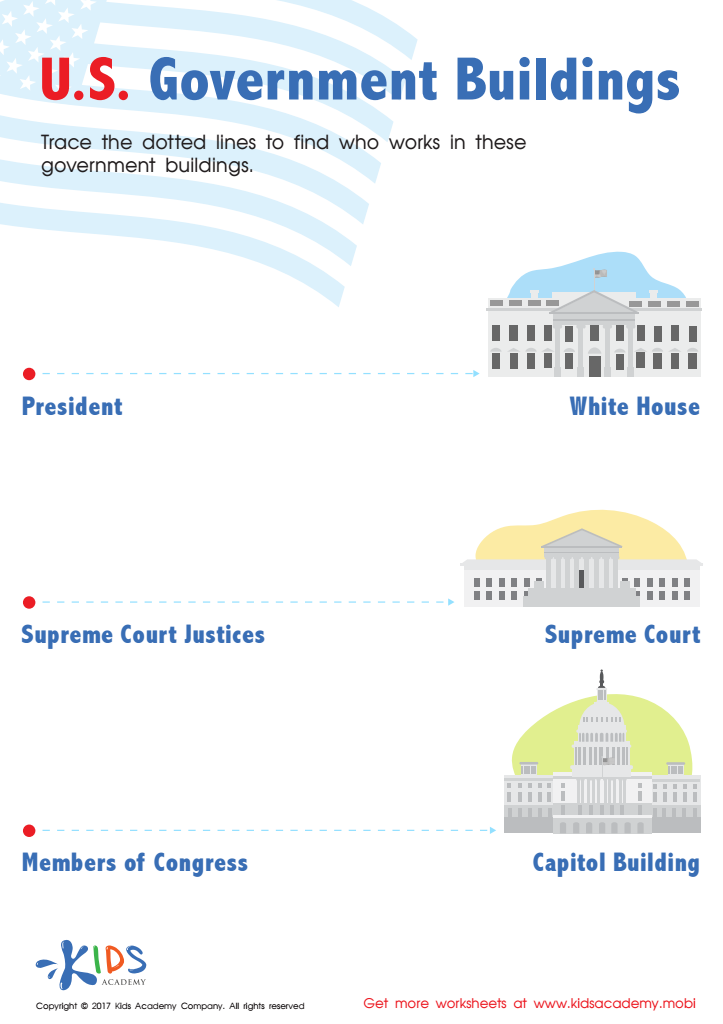

US Government Buildings Printable
Help your child learn about US government with this worksheet! They'll remember all the buildings and governing bodies with ease.
US Government Buildings Printable
Worksheet

 Assign to the classroom
Assign to the classroom






